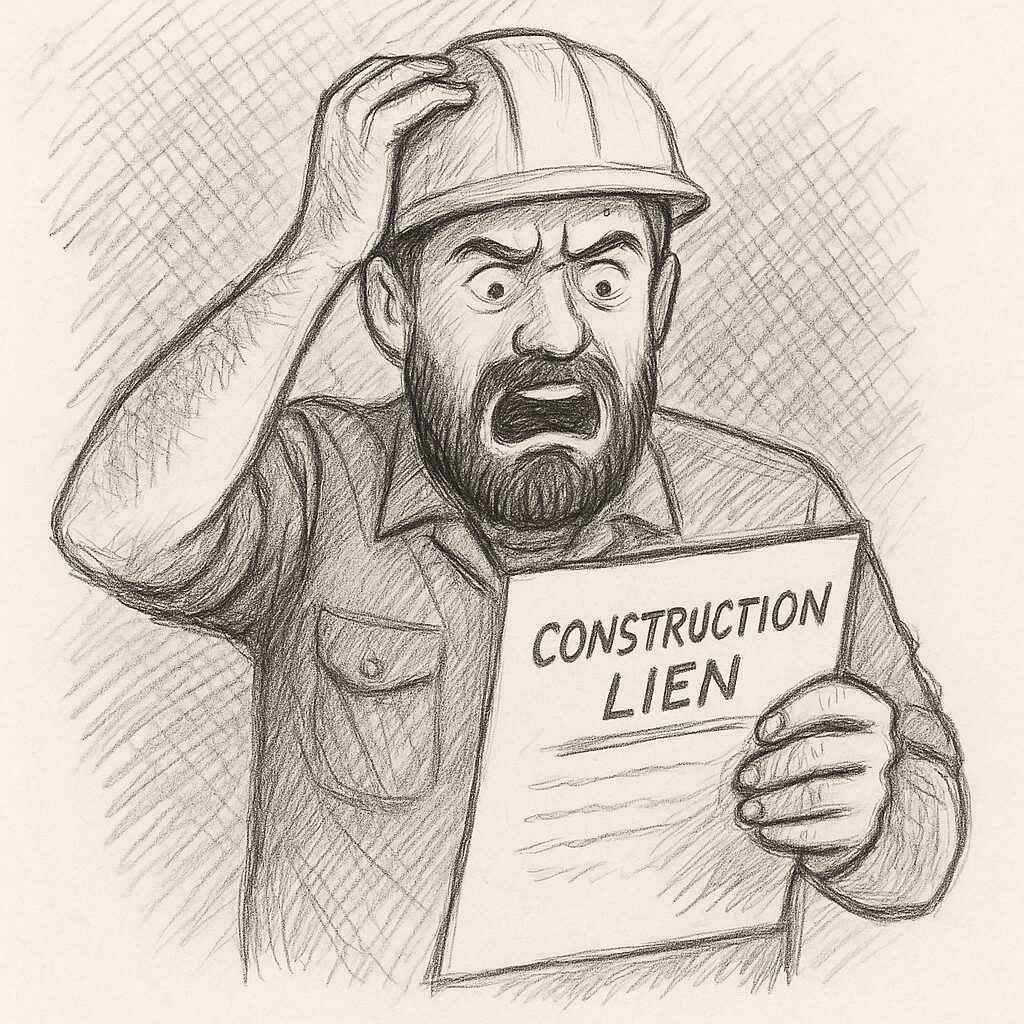Introduction: Protect Your Lien Rights by Avoiding These Costly Errors
A construction lien is one of the most powerful legal tools available to contractors, subcontractors, material suppliers, and equipment rental companies to ensure they get paid. But Florida’s Construction Lien Law (Chapter 713, Florida Statutes) imposes strict requirements—one misstep and your lien may be unenforceable.
This guide walks through the most common mistakes that cause construction liens to fail in Florida, explains the key statutes and case law that apply, and offers best practices to keep your lien valid.
1. Failing to Serve a Timely Notice to Owner (NTO)
Under Florida Statute §713.06, most subcontractors, material suppliers, and equipment rental companies must serve a Notice to Owner (NTO) within 45 days of starting work or delivering materials.
Missing this deadline is fatal. If an NTO is required and not properly served within 45 days, you lose the right to lien—even if you haven’t been paid. To avoid issues with delivery or mail delays, aim to serve your NTO no later than Day 40. Always use Certified Mail, Return Receipt Requested, and retain proof of mailing.
2. Missing the 90-Day Lien Filing Deadline
Florida Statute §713.08 requires you to record your lien within 90 days of your last day of work or final material delivery—not the date of invoicing or when payment was due.
Even filing one day late makes your lien completely invalid. Aim to file by Day 80 to leave room for unexpected issues or delays with the clerk’s office.
3. Overstating the Lien Amount (Fraudulent Lien Risk)
Florida takes fraudulent liens seriously. Under Statute §713.31, a lien may be deemed fraudulent if it includes:
- Willfully exaggerated amounts
- Charges for work not performed
- Unauthorized costs, like attorney’s fees or penalties not allowed by contract
If a lien is found fraudulent, you could lose all lien rights and face damages or attorney’s fees. Only claim amounts that are clearly documented and contractually owed.
4. Leaving Out the Required Lien Warning
Every Florida construction lien must include the statutory warning in Florida Statute §713.08(3):
“WARNING! THIS LEGAL DOCUMENT REFLECTS THAT A CONSTRUCTION LIEN HAS BEEN PLACED ON THE REAL PROPERTY LISTED HEREIN.”
Failure to include this exact statement renders the lien invalid. Always copy and paste it directly from the statute to ensure compliance.
5. Not Serving the Recorded Lien on the Property Owner
Recording the lien isn’t enough. Florida Statute §713.08(4)(c) requires that you serve a copy of the recorded lien on the property owner within 15 days of recording.
Failure to do so won’t automatically void the lien—but it can make it unenforceable if the owner was prejudiced by the delay. Serve it as soon as possible, again using Certified Mail, Return Receipt Requested, and keep documentation.
6. Failing to Enforce the Lien Within One Year
A recorded lien only lasts one year. After that, it’s expired unless you file a lien foreclosure lawsuit under Florida Statute §713.22.
This period may be shortened if:
- The owner files a Notice of Contest of Lien, reducing the deadline to 60 days.
- The owner files a Complaint to Show Cause, which may give you as little as 20 days to respond.
Don’t wait. If payment hasn’t been made, talk to an attorney by the 9-month mark to preserve your lien rights.
7. Filing a Lien on the Wrong Property
Incorrect legal descriptions, wrong parcel numbers, or confusing similar addresses can result in your lien being challenged and dismissed. Double-check the legal description from the official property records—not just the mailing address or the GC’s documents.
8. Using the Wrong Business Name
Florida lien law requires the lienor to identify themselves using their legal business name, as registered with the Florida Division of Corporations.
Filing under a trade name (DBA) without disclosing the legal entity behind it may result in the lien being rejected. Always use the full, registered business name to avoid unnecessary legal challenges.
Final Thoughts: How to Avoid Lien-Killing Mistakes
To protect your lien rights:
- Serve the NTO early (Day 40 is safest)
- Record the lien within 90 days of last work or delivery
- Never exaggerate your claim
- Include the statutory warning in your lien
- Serve the recorded lien within 15 days
- File suit before the 1-year deadline (or earlier, if contested)
- Double-check your property and business details
A single mistake can destroy your right to get paid. Don’t let that happen.
Disclaimer:
This article is provided for general informational purposes only and does not constitute legal advice. Reading this guide does not create an attorney-client relationship. Because lien laws are complex and fact-specific, you should consult a qualified Florida attorney for advice regarding your particular situation.



